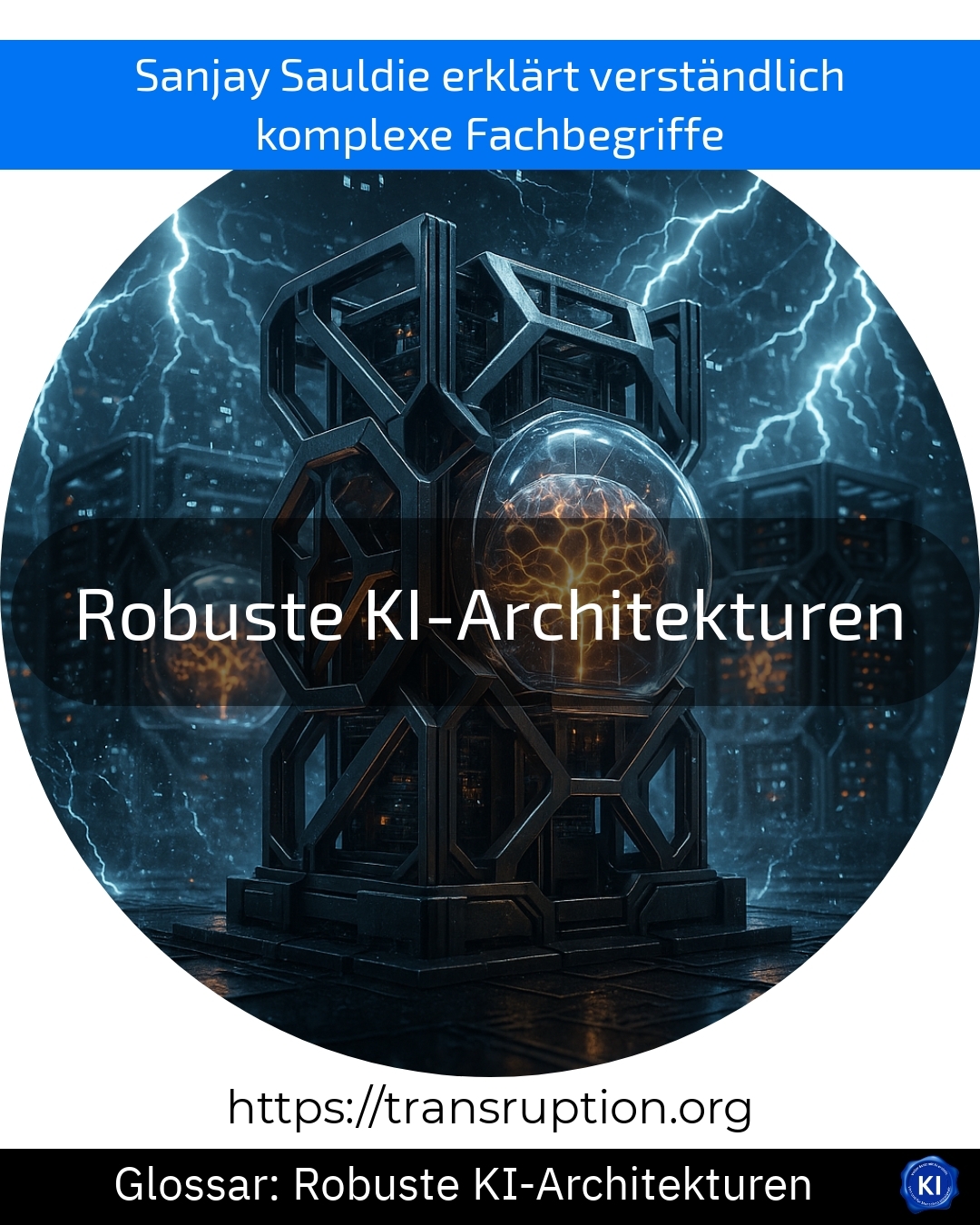The term "robust AI architectures" is particularly relevant in the fields of artificial intelligence, industry and Factory 4.0 as well as cybercrime and cybersecurity. It describes the planning and construction of artificial intelligence systems that function reliably even when unexpected problems or attacks occur.
The aim of a robust AI architecture is to prevent failures, errors or manipulation as far as possible. To achieve this, protective mechanisms are built in, regular tests are carried out and the systems are designed in such a way that they remain capable of learning. This ensures that the AI remains stable even in the event of dirty data, sudden changes or technical faults.
A simple example: In a modern factory, an AI controls the machinery. If an error occurs or someone tries to disrupt the system from outside, the robust AI architecture ensures that operations do not come to a complete standstill. The AI recognises the problem, reacts automatically and protects important data and processes.
Robust AI architectures are indispensable in the digital transformation because they create security, stability and trust - fundamental prerequisites for companies and decision-makers to be able to utilise artificial intelligence profitably.















